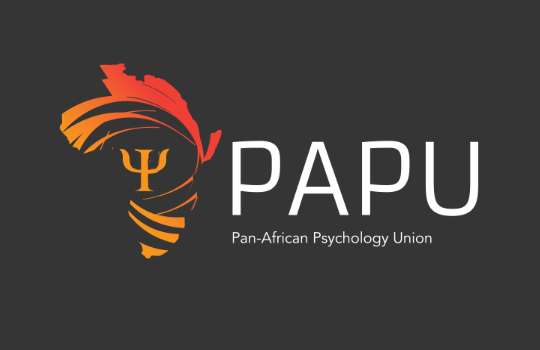News archive
-
Regional News
The Pan-African Psychology Union (PAPU)
PAPU arose from a meeting held during the 30th International Congress of Psychology (ICP 2012), held in Cape Town in July 2012, where the leadership of African psychology announced their Cape Town Declaration (see: http://www.panafricanpsychologyunion.org/) in which they commit to the establishment of a Pan-African Psychology Union to promote the development of psychology as a science and practice in their countries, Africa and the world.
Consultations were held in various parts of the African continent, resulting in unanimous support for the formation of PAPU, which caters for national, category, university, individual, student and elder membership.1st Pan-African Psychology Congress (www.papu2017.com)
Africa is honored to invite you to the 1st Pan-African Psychology Congress (PAPU2017) to be held in Durban, South Africa on 18-21 September 2017. PAPU2017 is hosted by the Psychological Society of South Africa (PsySSA), in collaboration with various African psychology societies and universities, under the auspices of the Pan-African Psychology Union (PAPU). This first-ever continental psychology congress promises to be a memorable professional and scientific experience in a unique social and cultural setting. Embracing the theme Psychology for Society, this historic PAPU2017 will showcase the best in psychology and its allied disciplines, featuring academics, researchers, practitioners and students from Africa and the rest of our diverse globe.
While PAPU2017 seeks to chart a positive trajectory for the growth of psychology in Africa, the scientific program will reflect global cutting-edge and critical trends, including epistemological, theoretical and applied developments and innovations that will contribute to the discipline in all its forms, so that there is more consonance between psychology and the people and environments that make up fast-changing societies everywhere. The scientific program caters to all areas of psychology and related disciplines such as psychiatry, social work and education.published: Boele de Raad, Tue, 18 Apr 2017
